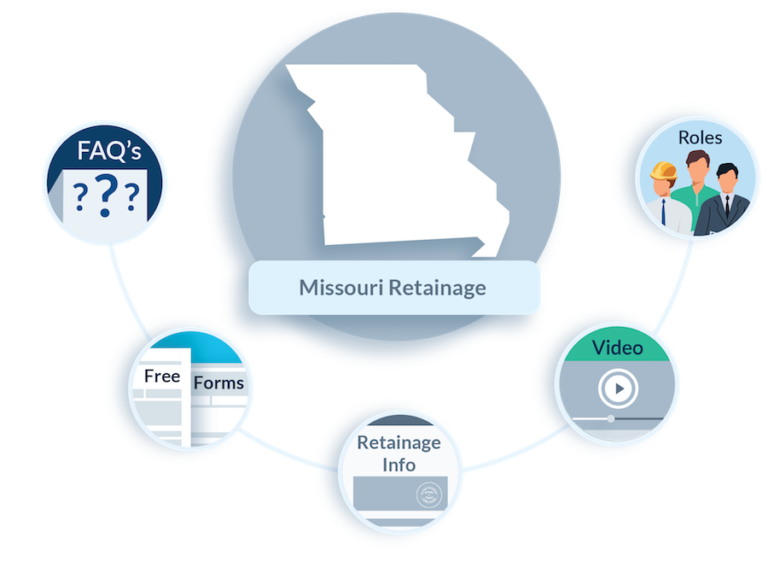Missouri Retainage Requirements
- Private Jobs
- Public Jobs
- Top Links
10% Retainage Limit
Retainage cannot exceed 10% unless there is a default.
30 Day Pay Period
Within 30 days of substantial completion, all retainage (or substitute security) must be released. If any punch-list work remains, up to 150% of the work remaining may continue to be withheld. Within 7 days of the owner releasing retainage to the contractor, contractor must release retainage to their subcontractors.
There is a Process to Recover
Yes, either acceptance of the owner or certificate of completion from architect or engineer is required. Recovery set forth by contract.
Not Held In Escrow
In Missouri, contractors and owners do not need to hold retainage funds in a separate escrow account.
5 Percent
Retainage rate is 5% unless it's determined that a higher rate of retainage is required. However, retainage cannot exceed 10%.
30 Day Pay Period
Upon contractor's request, retainage may be released early. The public entity may reduce or eliminate retainage if work is satisfactory. Retainage must be paid within 30 days of the due date of final payment.
There is a Process to Recover
Yes, written notice and process is required.
Retainage serves two general purposes: (1) To provide an incentive to the contractor or subcontractor to complete the project; and (2) To give the owner some protection against problems like liens, contractual defaults, delays, and more. In most states, laws exist to regulate how the parties use the retainage concept, mostly protecting some parties against abuse of the tool from others. The following are resources, legal information, and frequently asked questions about Missouri’s retainage requirements. The Missouri retainage statutes are reproduced below on this page.

